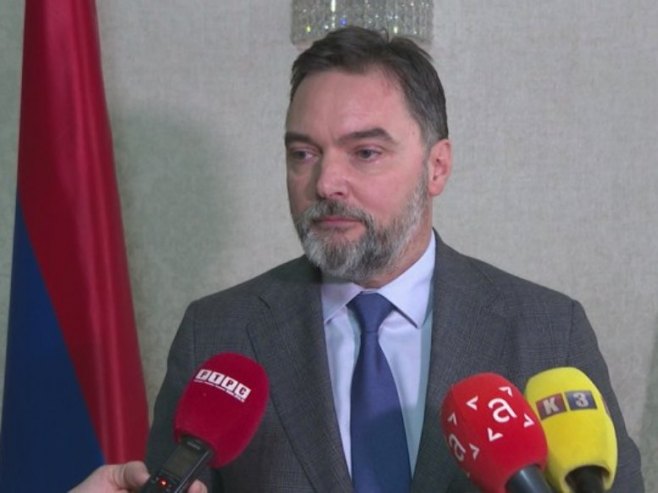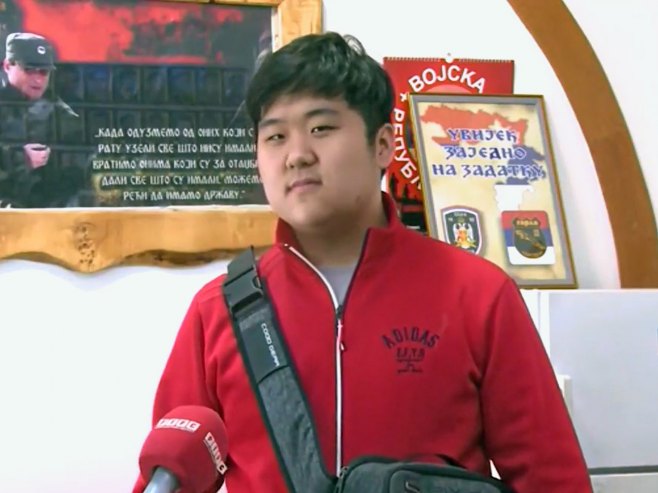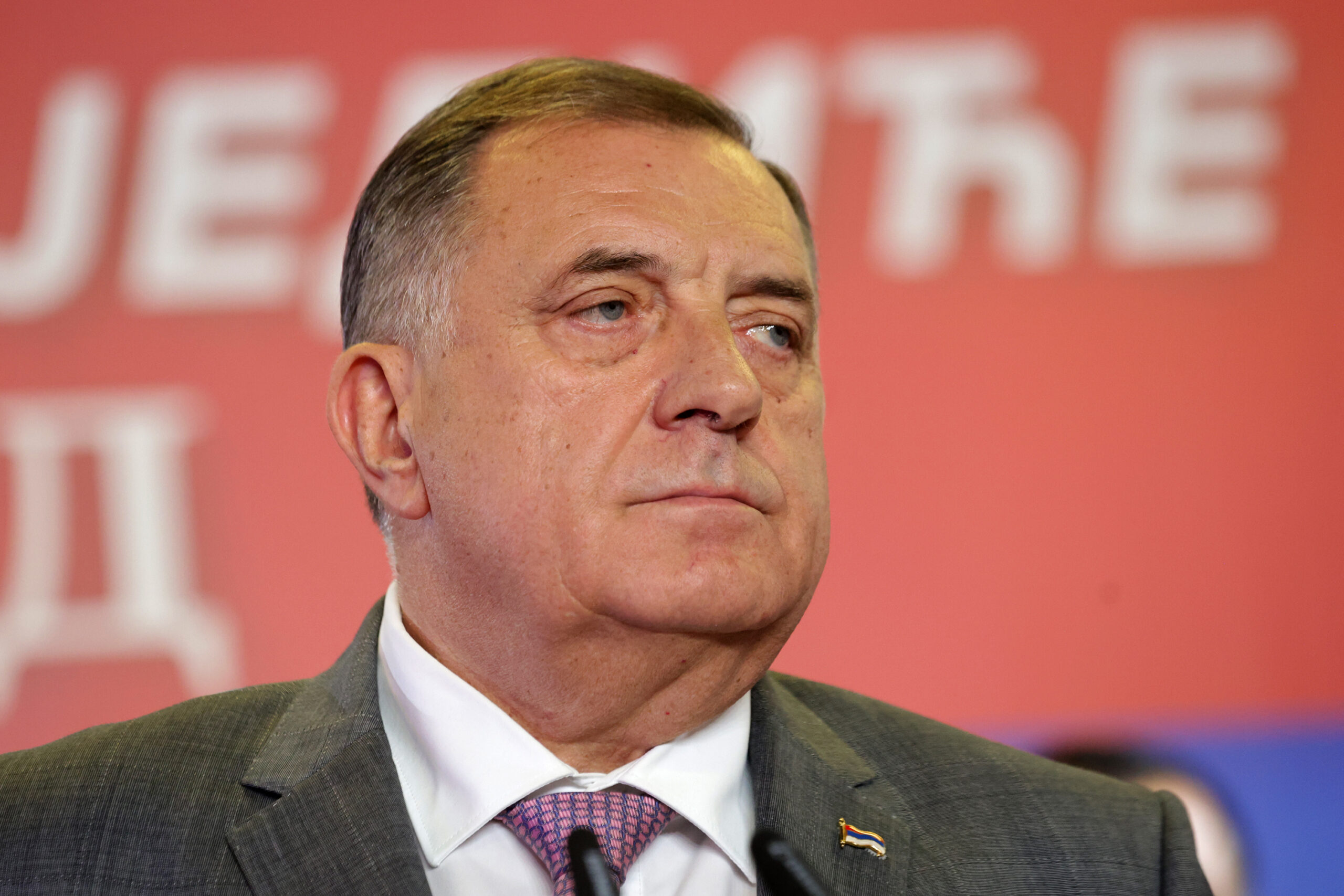The European path of Bosnia and Herzegovina (BiH) is inherently complex and challenging, and if the European Union (EU) truly has sincere intentions and fully believes in its capacity to integrate new member states, then it must be fair. We understand that there are obligations of the domestic authorities, but on the other hand, there must also be a credible partner with whom we are negotiating, conveyed Željka Cvijanović, the Serb member of the BiH Presidency and Vice President of SNSD, in an interview with banjaluka.net.
“Our commitment to cooperate with everyone is there. It has been manifested through years of friendship and understanding, and historical circumstances are such that there is a connection, and we see nothing wrong with the European path. Our foreign policy goal is the EU,” stated Cvijanović.
Cvijanović emphasized that the responsibility on this path is shared, and many processes are the fault of international partners.
“On this European path, international partners have played a significant role. We’ve had situations where we had good relations with the EU, worked on internal matters as authorities, and received messages from EU representatives that this was good, only for the American ambassador to come and say it doesn’t suit them. Does the EU dictate what’s good, or does America? If there’s responsibility, it must be said that it’s shared. Some might say, ‘That’s your job, you should have done it.’ Yes, but you shouldn’t have made it harder for us by spoiling the agreement. When we say we can meet a requirement, you say no, it has to be done in a different way,” explains Cvijanović.
On the other hand, Cvijanović adds, new geopolitical circumstances and movements have changed the climate within the EU itself.
“Many countries that were previously skeptical about how to treat the Western Balkans, generally skeptical about a new wave of EU expansion, are now changing their views. They do so purely because of certain security assessments and the fact that they want to see everyone on the European continent integrated within the EU framework. Of course, this means certain types of control through joint work, but there are shifts,” emphasizes Cvijanović.
EU Expectations Were Too High and Unrealistic
Regarding BiH, Cvijanović believes that the EU has made catastrophic mistakes in the past period, and there were many opportunities, but they ended up being missed opportunities and unused chances.
“Because the EU’s expectations were too high and unrealistic. In certain situations, we had ready solutions and could have reached certain agreements, but they again demanded it be done differently. Our idea was to do what was possible at that moment, in terms of a law or something that needed to be done, and then to fix it afterwards,” said Cvijanović.
She stresses that the EU dreams of BiH being restructured, to be centralized.
“Maybe not unitary, as we often say, but to be centralized to the extent that the competencies of the entities are somehow transferred and all those constitutive elements that entities have, and ultimately the cantons in the Federation of BiH, are lost. I think that’s a misguided dream and absolutely absurd and pointless to waste political and every other kind of time, and if you’re truly committed and see someone in the EU, to set those kinds of requirements,” highlighted Cvijanović.
She adds that in a few months, elections for the European Parliament will be held, and a lot will change in that milieu.
“Maybe not in a political-structural sense that we now have expectations that the political scene will be spectacularly different, but there will be many new faces, approaches, events that will be aligned with what’s happening in the world today. So, these people somehow rushed to mark the end of their mandate in a way that BiH fulfills some obligations and they can say there they got negotiations and a green light for negotiations,” says Cvijanović.
Cvijanović added that the EU, at the behest of Bosniak currents from Sarajevo, had deceptive approaches in BiH at certain times, all with the aim of extinguishing certain entity functions, which was never required in any directive.
Republika Srpska Against Sanctions on Anyone
When asked whether the European path of BiH could be jeopardized by the visit of the President of Republika Srpska Milorad Dodik to Russia and the meeting with Vladimir Putin, given the official EU policy regarding the war in Ukraine includes sanctions against Russia, Cvijanović answers that the country has never done anything against Dayton’s BiH, and thus Dayton-verified Republika Srpska, and that the people appreciate it.
“We in Republika Srpska do not promote the view
that sanctions should be introduced against anyone. Likewise, we do not promote the view that all the world’s problems are solved by wars, but wars happen. Therefore, that is our official policy, and we need to maintain a neutral course. Likewise, the commitment of Republika Srpska’s institutions is to cooperate with all those who respect its position, respect the Dayton Agreement, which is Republika Srpska, it is BiH, all those who have a realistic relationship based on international law and principles, that is someone with whom cooperation is needed,” said Cvijanović.
Misuse of Joint Institutions
Cvijanović highlighted that in the joint institutions, there is misuse and discrimination against Serb representatives.
“We have ambassadors who, independently or in agreement with someone, not representing what should be the regulated position of the Presidency, which is in charge of foreign policy, join certain opinions in the UN. They ignore who is constitutionally superior to define the stance that he only needs to present there. When I sent a letter to the UN Secretary, I was explained that letters reflecting the stance of one member, not the collective, cannot be forwarded. Now we have in missions letters that were forwarded by other members of the Presidency, they were duly sent, while mine was not, and that is discrimination,” believes Cvijanović.
She adds that such an approach by Bosniak politicians is counterproductive and thinks it will “doom BiH.”
“That is just a blurred vision in which they gain something and sideline the constitutional Republika Srpska, actually creating greater resistance and a gap, which becomes a deep abyss. Now it depends on the approach of those whether we fall into that abyss or not. Republika Srpska will not. Why should we be hostages to such manipulations, misuse of joint institutions, and bending to someone’s will? So, everything done in that deceitful way is counterproductive when it comes to BiH, and I think it will even doom BiH,” Cvijanović conveyed.
Speaking about the Constitutional Court of BiH, Cvijanović said that it needs to be reformed so that it becomes an institution that radiates credibility, integrity, and an institution where every citizen, whether in Republika Srpska or the Federation of BiH, can believe that their rights will be protected, not to change the Constitution.
She emphasizes that reforms need to be carried out in a way that foreign judges are replaced with domestic ones.
Trial of Dodik and Lukić a Path to Decline
The trial of the President of Republika Srpska and the acting director of the Official Gazette of Republika Srpska, Cvijanović characterized as an absurd violation of legal procedures.
“I was shocked in court last time. I listen to talk about the law, and everything you recognize indicates a violation of legal procedures. A nondemocratically appointed foreigner makes nondemocratic decisions, and then you bring a democratic representative to court to defend himself because he, as a democratic representative who has fulfilled his constitutional duty, needs to answer because some nondemocratic character who was brought here made a nondemocratic decision. Do you know how absurd, foolish, what we are dealing with? When I see colleagues in the Federation rejoicing, they don’t understand that it’s a path to decline or they hope that someone will help them again, that by punishing Milorad Dodik today, they will solve the problem tomorrow. They will not solve the problem here. They have created an additional problem for us with that,” concludes Cvijanović.
Source: RTRS









